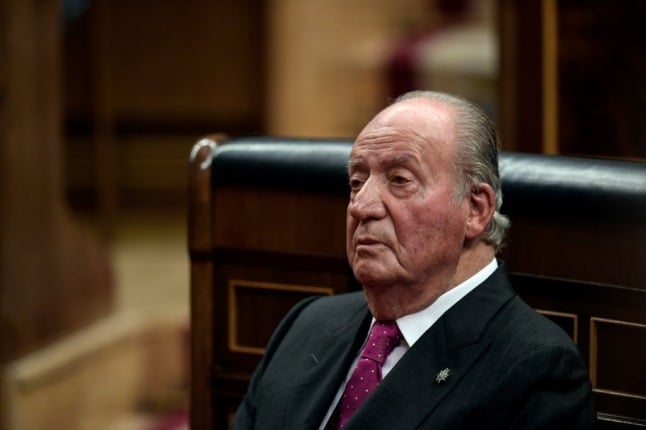After three years of investigation, the Geneva top prosecutor’s office said in a statement that the money transferred into a Swiss bank account had “not been sufficiently documented”.
But it said the probe had “not permitted to establish in a sufficient manner a link between the amount received from Saudi Arabia and the contract to build the high-speed train.”
Geneva prosecutors opened their probe on August 6th, 2018 into suspicions of “aggravated money laundering” against the 83-year-old former monarch following media reports about possible illegal commissions he had pocketed in connection with the high-speed train deal.
A Spanish consortium was awarded the lucrative contract in 2011 to build the high-speed rail link between Medina and Mecca.
The suspicions centred on $100 million (€88.6 million) that Saudi Arabia’s late King Abdullah deposited in 2008 into a Swiss bank account to which Juan Carlos had access.
The Geneva prosecutors said their investigation had established that the money had indeed been deposited into an account with Geneva bank Mirabaud & Cie belonging to the Lucum foundation, for which Juan Carlos held the economic rights.
They also determined that there was evidence the ex-king transferred the bulk of this money in 2012 to an account in the Bahamas belonging to a company held by his former mistress, German businesswoman Corinna Zu Zein-Wittgenstein.
The prosecutors said that the complexity of the transactions, using a foundation and various companies, “showed a will to dissimulation”, but said there was not enough evidence to proceed.
The ex-king, a key figure in Spain’s transition to democracy following the death of dictator Francisco Franco in 1975, has meanwhile also been the target of several probes in Spain over his financial dealings there.
Spanish prosecutors decided earlier this month to push on with their investigation for another six months.
The probes have especially been focused on whether there was any illegal dealings after the former king abdicated in 2004 and lost his immunity.
While he has not been charged with any crime, the probes have tainted his reputation and that of the Spanish monarchy.




 Please whitelist us to continue reading.
Please whitelist us to continue reading.
Member comments